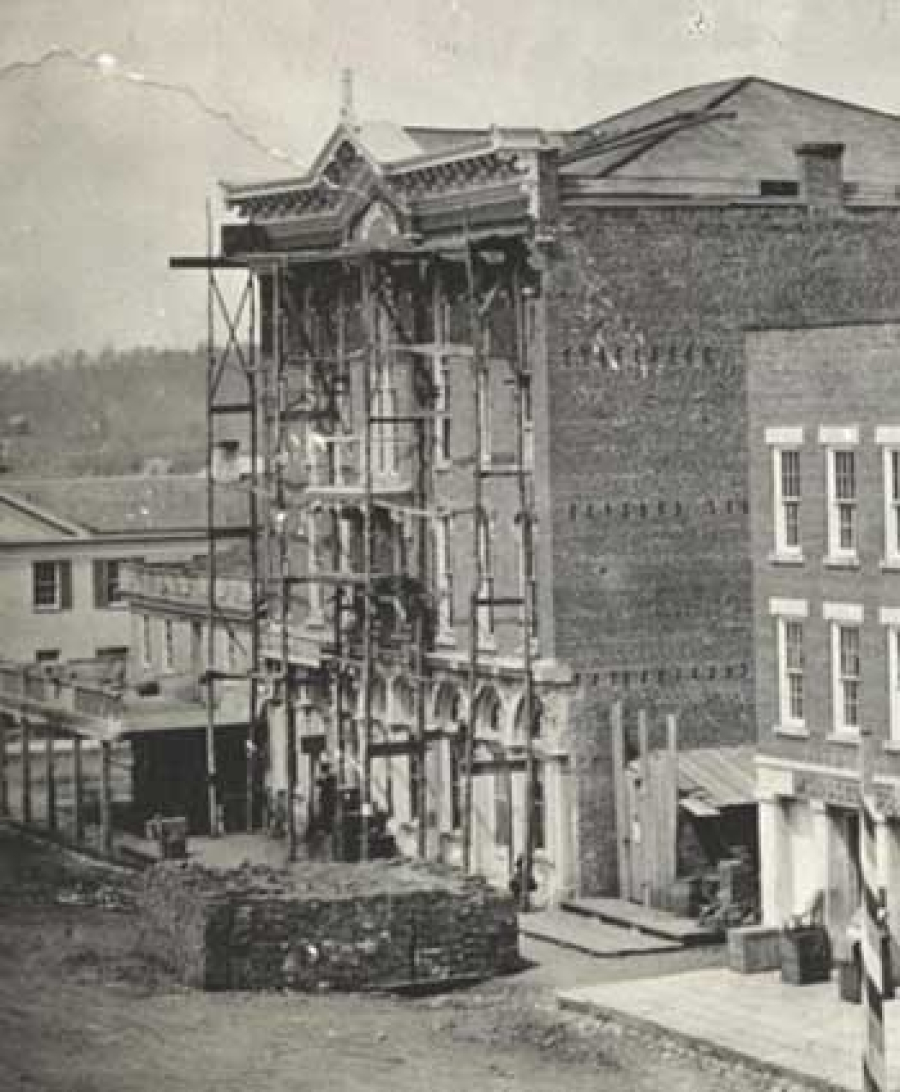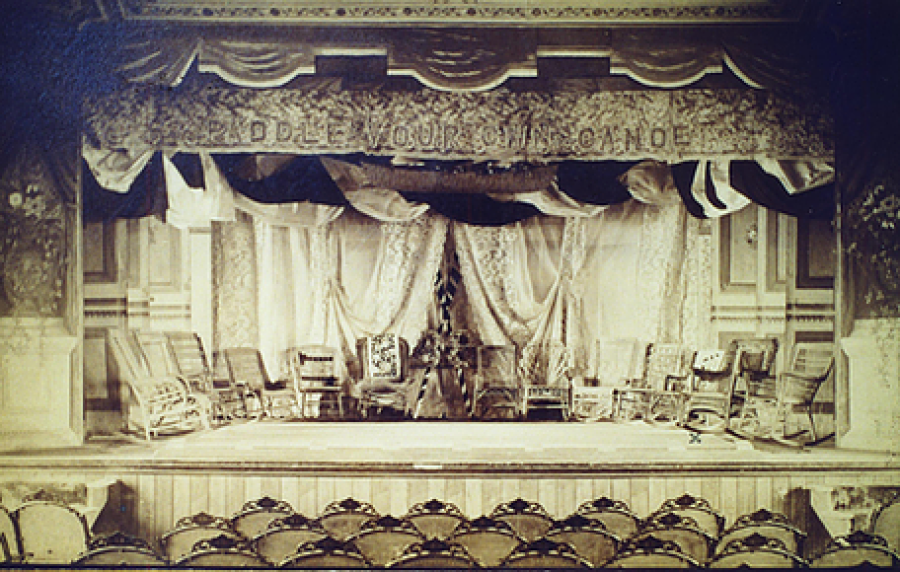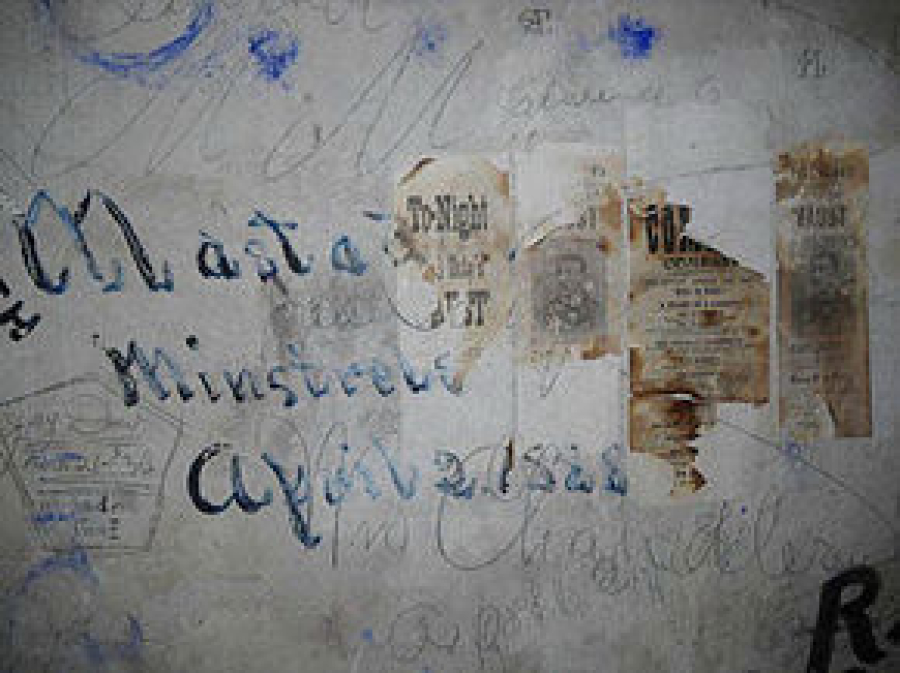The Opera House Rises 1864-1899
Assion-Ruffing City Hall
Construction began on the Assion-Ruffing building in 1864 by Mr. Cook from Lafayette for merchants Joseph Assion and John Ruffing. Never a government building, it was named 'City Hall' for the grand hall on its third floor with a free span measuring 58' by 60'.
The first event in the hall was a ball held on June 16, 1865 for Company B, 86th Indiana Volunteers and other soldiers returning home from the Civil War. A few weeks later another ball was held there to celebrate the 4th of July. Balls were held frequently in the Hall, as were lectures, dinners, concerts, demonstrations, and other entertainments.
In August 1870, John Lathrope, Jr. opened a bakery, confectionery, and farmers lunch room in the No. 1 block of the City Hall Building. The painting and papering of the rooms were noted in the Delphi Times for the quality of the workmanship. Lathrope was also a renowned cornetist having served as bugler and captain of the 9th Volunteer Regimental Band during the Civil War. Lathrope's Silver Cornet Band was a musical institution in Delphi and the surrounding area. In 1881, John Lathrope, Jr. partnered with John Ruffing to remodel the third floor of City Hall into a grand opera house.
Lathrope & Ruffing Opera House
By 1881 the Delphi newspapers are reporting on work to transform City Hall into an Opera House. Barnett and Mohr put a tin roof on City Hall in 1881. John Ennis was hard at work in December 1881 on the “scenery, curtains, etc. for Lathrope’s opera house.” In February the remodeling is rapidly approaching completion. New steps are built in March 1882 to facilitate access all the way to the street.
Lathrope served as the impresario for the opera house and commissioned performers to appear on its stage. On April 7, 1882, the Lathrope and Ruffing Opera House had its grand opening, featuring the Litta Grand Opera Company with the famous soprano Marie Litta as prima donna, performing to a packed house of 500.
Rooms were rented by Lathrope in the adjacent Greenup building (later the Crosby Hotel) and used as dressing rooms for the performers. An opening at the rear of the stage provided access via a short stair to the rooms on the fourth floor. Actor signatures from the late 1800s and early 1900s grace the backstage wall of the opera house stage wall and the dressing room walls in the adjacent building.
For the next two decades the opera house was a heavily-used performance venue with traveling theatre and minstrel companies, lecturers, concerts, local dramatic presentations—even graduation ceremonies.



